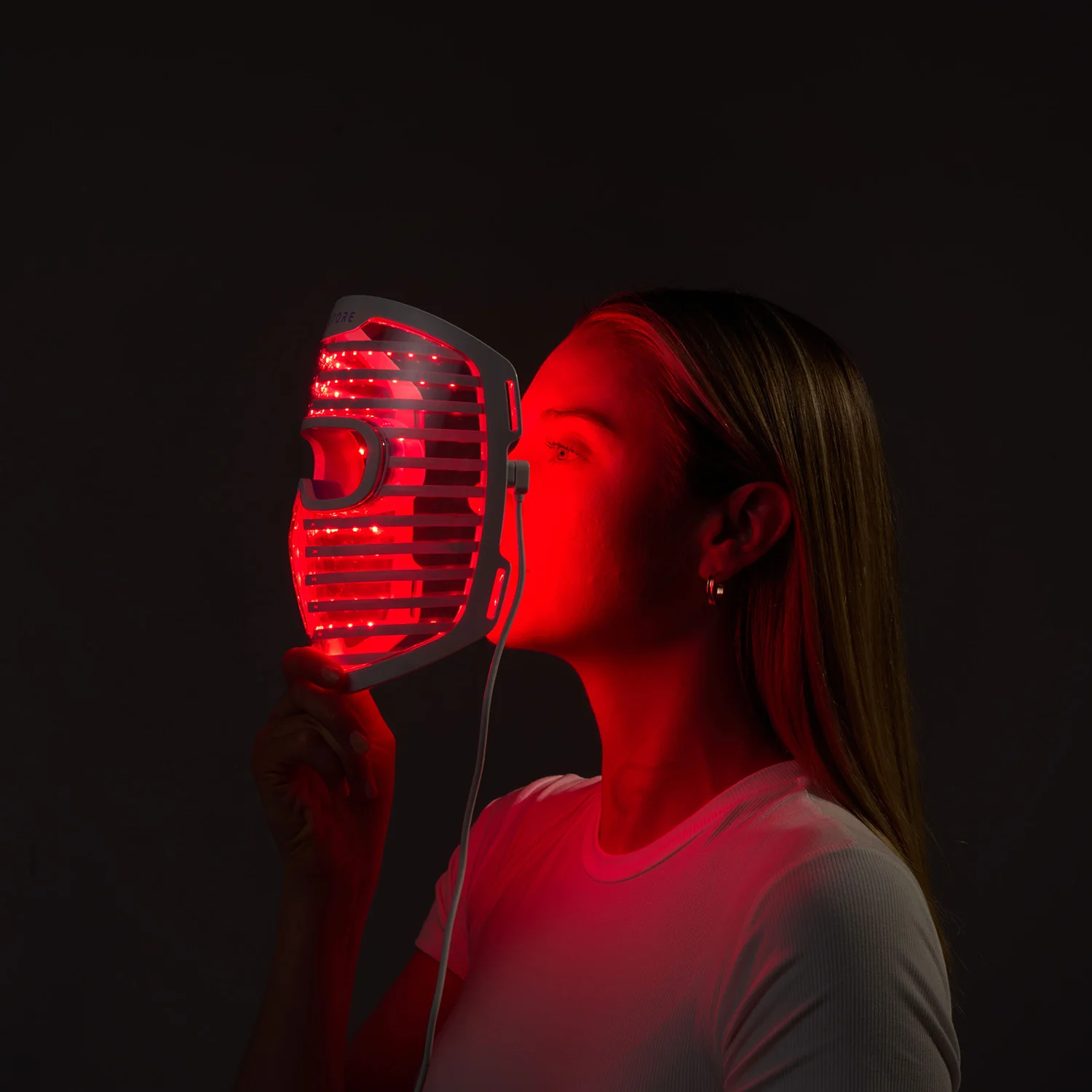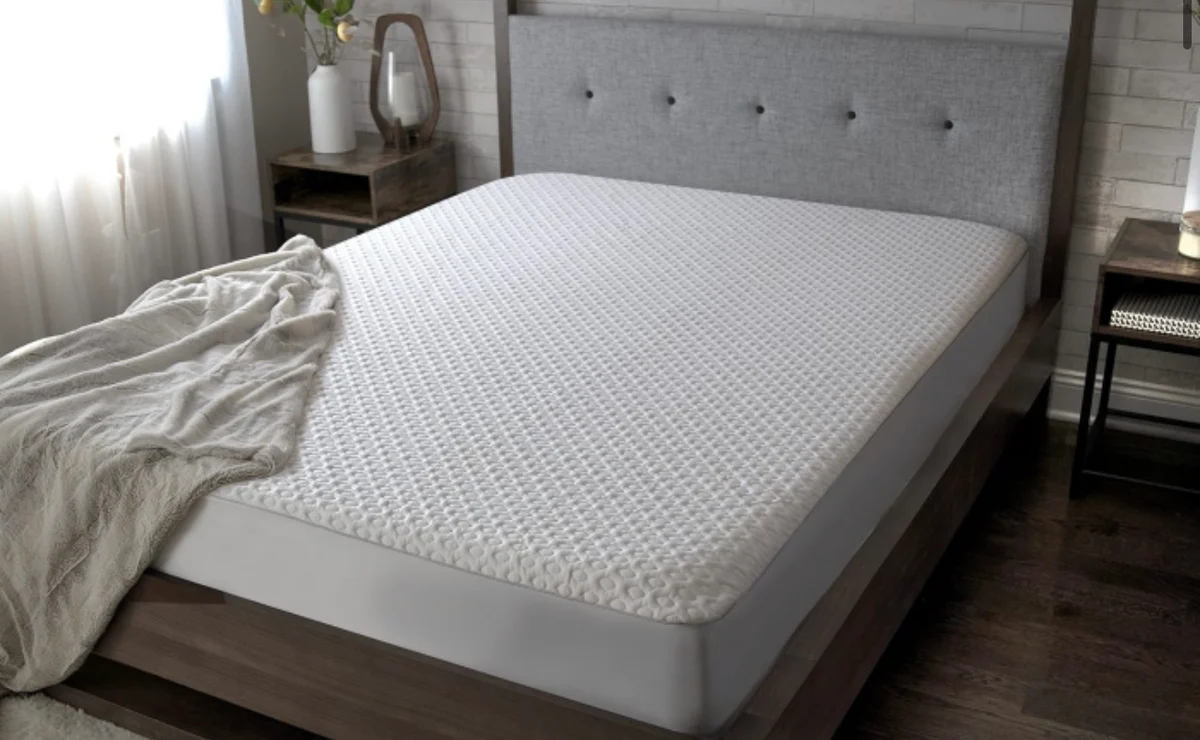11 ADHD Supplements That Actually Work (According to Science)
Life with ADHD can feel like chaos on fast-forward. It’s overwhelming, yes, but I still love it. I’ve learned to embrace the mess and keep searching for what brings clarity and peace.
Supplements are part of that journey for me. Some boost focus, others ease the mental noise. But one thing’s for sure: they’re a big part of my life as someone living with ADHD.
So, if you’re curious about what might work alongside meds like methylphenidate or as natural support, then don’t worry, I’ve got you. Today, we’ll talk about everything you want to know about ADHD supplements.
Why Do People With ADHD Need Medication?
Let’s get one thing out of the way first. ADHD isn’t just about zoning out in class or forgetting your keys.
The full ADHD meaning (Attention-Deficit/Hyperactivity Disorder) covers way more than that. It’s a neurodevelopmental condition that affects how we manage attention, motivation, memory, and impulse control. There are also a few subtypes such as primarily inattentive, hyperactive-impulsive, and combined (can you guess which one’s mine?)
So why do people with ADHD need medication in the first place?
It comes down to brain chemistry. People with ADHD often have lower dopamine levels, which affects how we feel rewarded, how motivated we are, and how focused we can stay.
Stimulant ADHD medication like methylphenidate (Ritalin, Concerta) and non-stimulants like guanfacine or Wellbutrin help regulate dopamine and norepinephrine so our brains can function with a little more ease.

Personally, I didn’t grow up on ADHD meds. I didn’t even know I had ADHD until later in life. In my very typical Asian upbringing, mental health wasn’t really a conversation. There are no such things as excuses for imperfection.
So, I coped using the usual workarounds: ADHD planners, ADHD apps, and even ADHD chairs to stay more comfortable and focused. And those tools helped greatly, don’t get me wrong.
But when life got overwhelming, such as when work deadlines piled up or emotions spiraled, medication helped me respond better. It gave me a chance to think before reacting, to pause before spiraling.
That said, not everyone wants or has access to ADHD meds. And that’s why natural supplements for ADHD adults are gaining traction, either as a complement to medication or a standalone route for people exploring their options.
What Does Science Say About ADHD Supplements?
Before we get into the science of ADHD supplements, I’d like to emphasize one thing: supplements aren’t a substitute for medical care.
That said, there’s growing evidence that certain vitamins, minerals, and nootropics can help regulate the systems affected by ADHD, especially mood, executive functioning, and focus.
Here are some of the most common ones.
Vitamin B-Complex
B vitamins support neurotransmitter synthesis, meaning they help your brain make the chemicals it needs to function. Low levels could disrupt dopamine pathways, which are already underactive for ADHD people.
A study from 2023 looked at vitamin B9 (folate) and B12 levels in kids with ADHD and found both were significantly lower compared to children without ADHD.
Another study suggests that B vitamins might work in a similar way to methylphenidate by interacting with the dopamine transporter (DAT) and increasing dopamine in the brain. The research is still early, but it hints at a possible biological mechanism that makes vitamin B complex a great supplement for people with ADHD.
Vitamin D
Several studies link low vitamin D levels to worse ADHD symptoms, particularly in children. A randomized clinical trial found that supplementing with 1,000 IU of vitamin D daily significantly improved impulsivity and behavior scores after three months.
Another meta-analysis of four RCTs showed small but meaningful improvements when vitamin D was used alongside methylphenidate. One study even tested high-dose vitamin D (50,000 IU/week) with magnesium, showing significant gains in mental health and emotional regulation.
While more research is needed, it does suggest that vitamin D may support cognitive and behavioral improvements, especially when paired with other ADHD treatments.
Magnesium
Magnesium supplements like magnesium citrate, magnesium l-threonate, and magnesium malate are known for their calming effects. Magnesium glycinate, in particular, is often used to support sleep and reduce irritability, especially for people like us who get overstimulated easily.
One study found magnesium deficiency may play a role in hyperactivity and agitation, particularly in children with ADHD symptoms.
Omega-3s (EPA and DHA)
Omega-3s are essential fatty acids that support brain function. A 2020 meta-analysis found small but significant improvements in ADHD symptoms, especially in individuals with low baseline omega-3 levels.
Omega-3s also help with emotional regulation, which many of us struggle with.
Bacopa Monnieri

Often found in natural supplements for ADHD adults, Bacopa has been studied for its effects on restlessness and self-regulation. A 2014 study showed improvements in impulse control and hyperactivity in children who took it consistently.
Choline
Choline supplements help acetylcholine production, a neurotransmitter tied to memory and focus.
In one review, citicoline was shown to improve attention and cognitive performance by promoting cell membrane repair and communication between neurons. And Alpha GPC, a bioavailable choline source, may also be able to boost motivation in ADHD people who are otherwise healthy.
Creatine
Believe it or not, the same creatine used for muscle building may also be a great ADHD supplement.
Newer research suggests it may support brain energy metabolism, which could be beneficial for working memory and executive function in people with ADHD. It's still early, but promising.
Gingko Biloba
Ginkgo biloba is often used for memory and cognitive support, but its effectiveness for ADHD is still being studied.
In a 6-week randomized trial comparing Ginkgo to methylphenidate, both groups saw some improvement. Methylphenidate had better results, but ginkgo had fewer side effects. So, while not as potent as stimulant meds, ginkgo biloba supplements may appeal to those seeking gentler, plant-based options.
L-Theanine
L-theanine, an amino acid found in green tea, has shown promising results for attention and inhibitory control. These are two areas often affected in ADHD.
A 2020 study found that combining L-theanine with caffeine improved cognitive scores and reduced mind-wandering in boys with ADHD. Other studies showed better reaction times, enhanced working memory, and reduced stress-related distraction.
The combination seems to reduce activity in the brain’s default mode network, which is often overactive in ADHD.
Zinc and Iron
These two play a part in dopamine production and regulation. People with ADHD often have lower levels of both. One study suggests supplementation may reduce inattention and impulsivity in some individuals.
Newer compounds
And then there are compounds like phosphatidylserine, 5-HTP, and SAMe (S-Adenosylmethionine) that may assist in mood regulation. These are serotonin supplements, and
Berberine supplements are gaining traction too, especially for their potential to improve insulin sensitivity and possibly reduce inflammation linked to cognitive fog.
Do Nootropics Work for ADHD?

If you’ve been down the ADHD supplements Reddit rabbit hole, you’ve probably seen endless threads on nootropics.
Nootropics, sometimes called “smart drugs,” are supplements that claim to sharpen focus and boost cognitive skills. Ever seen the 2011 movie Limitless featuring Bradley Cooper? That’s the basic premise, but of course, not to that level.
I’ve personally tried a few nootropics for ADHD myself. Some worked while some made me feel wired. Others had no effects.
But the appeal makes total sense. After all, when your brain feels like 42 tabs open with none of them loading, you’d try just about anything.
A 2022 review discussed in detail how nootropics work. They support brain metabolism, improve blood flow, and help your brain manage neurotransmitters like acetylcholine and dopamine source.
The category includes both synthetic compounds and natural supplements that show promise for improving memory and attention, especially in people with ADHD.
- Modafinil
- Methylene blue (MB)
That said, effects can vary widely. Most nootropics don’t offer overnight magic, and they often take consistent use to notice benefits. If you’re curious about how these fit into a supplement plan, they can be worth exploring, as long as you go in with realistic expectations and some caution.
Like most things with ADHD (and as the ADHD supplements Reddit rabbit hole will tell you), your mileage may vary – and that’s okay.
What’s the Link Between Methylfolate and ADHD?
One of the most interesting things I’ve learned on my ADHD journey is that people with ADHD are more likely to have mutations in the MTHFR gene, especially the A1298C and C677T variants.
A 2024 meta-analysis confirmed a connection between A1298C and ADHD, and another study even found that moms with certain MTHFR genotypes had a higher chance of having kids with ADHD.
These affect how your body processes folic acid into methylfolate, its active form. If you’re taking a standard multivitamin and not feeling any difference, this might explain it.
A methylfolate supplement skips that conversion step. It’s been linked to better mood and clearer thinking, especially in people with low folate levels or MTHFR mutations. It’s not a miracle pill, but if you’ve been feeling mentally foggy, low on energy, or emotionally flat despite everything else you’re doing, it’s worth looking into.
Can ADHD Supplements Replace Medication?
This is the question a lot of people are too nervous to ask out loud. Don’t worry, it’s 100% valid.
Some folks with ADHD don’t respond well to prescription medications. Others experience side effects like insomnia, anxiety, or appetite loss that make the trade-offs feel not worth it. And then there’s the access issue: getting a diagnosis, filling a controlled prescription, and affording it all can be a full-time job in itself.
So, can natural supplements for ADHD adults replace something like methylphenidate or guanfacine?
Short answer? Not really – at least not in most cases. Prescription meds work by directly affecting dopamine and norepinephrine pathways. That’s something supplements just don’t do at the same speed or intensity.
But that doesn’t mean supplements are pointless. ADHD meds can be the foundation, but supplements can fill in the gaps.
For people who can’t tolerate meds or don’t have access to them, certain nootropics and vitamins might help manage specific symptoms. Think of citicoline for mental clarity, magnesium glycinate for sleep and overstimulation, or saffron and 5-HTP for mood.
Still, if you're considering going supplement-only, know this: the effects are usually milder, take longer, and may not be enough on their own for more severe symptoms. It’s always worth talking to a professional before making any big changes.
Tips for Combining ADHD Supplements With Prescription Meds
You’re not alone if you’re taking ADHD medication and wondering how to stack ADHD supplements with them.
I’ve done the same, and I’ve made mistakes, too. So here’s what’s helped me and others avoid issues and actually benefit from the combo.
1. Space out your timing
If you're taking stimulant meds, try not to combine them with energizing supplements like citicoline or caffeine at the exact same time. It can overwhelm your system and trigger jitteriness or a nasty crash later.
Instead, space them out by 2–3 hours to keep your energy more stable throughout the day.
2. Start low, go slow
Adding five new supplements all at once is basically asking for chaos.
So, introduce only one thing at a time, whether it’s magnesium, omega-3s, or something else, and give it at least a week to see how your body responds. That way, if something feels off, you’ll actually know what’s causing it.
3. Be mindful of mood changes
Some ADHD supplements, like 5-HTP or SAMe, interact with serotonin. If you’re already taking antidepressants, guanfacine, or anything that touches your mood pathways, stacking too much can backfire fast.
Always check for potential interactions, and when in doubt, run your plan by a healthcare provider who understands both ADHD and supplements.
4. Support your nervous system
Medications, especially stimulants, can sometimes crank up anxiety, muscle tension, or that wired-but-tired feeling.
Adding something calming like magnesium glycinate, L-theanine, or a little extra electrolytes can really help. It’s about giving your nervous system backup support, not just piling on more stimulation.
5. Hydration and protein matter
Supplements and meds work best when your basic nutrition is dialed in. Keeping your blood sugar steady and staying hydrated is key.
I’m a big fan of 'easy' like protein cookies, clear whey protein, or a quick protein shake when I’m on the go. These can fuel your brain without crashing later. Just make sure not to skip meals because your supplements (and your brain) need that steady support.
Are There ADHD Supplements Side Effects?

Just like prescription medication, ADHD supplements can come with risks. Even natural compounds can cause reactions depending on your biology, dosage, and any medications you’re already taking.
So, it’s important to understand the side effects of ADHD supplements before adding them to your routine.
Most ADHD supplements side effects are mild and temporary. For example:
- Magnesium glycinate may cause loose stools at high doses.
- Citicoline and choline supplements can trigger headaches, restlessness, or stomach upset in some users.
- 5-HTP and same supplements, which affect serotonin, might cause dizziness, nausea, or mood swings, especially if stacked with antidepressants like wellbutrin or guanfacine.
- Berberine supplements may interfere with certain liver enzymes that process medications.
- Even helpful ingredients like EPA DHA can thin the blood, so check for interactions if you're taking anticoagulants.
These side effects are usually dose-dependent, which means they’re more likely to appear when you take too much or combine multiple products at once.
That’s why it’s a good idea to introduce supplements slowly and track how your body responds. If anything feels off, it might be time to pause, reassess, or adjust your stack.
And finally, supplements aren’t regulated like prescription drugs. Always buy from reputable brands that third-party test for purity and potency. A clean label and transparent ingredient sourcing can help minimize risk.
If you're unsure, talk to your doctor or a licensed integrative health practitioner who understands both ADHD and supplement use.
Finding What Works for Your ADHD
Supplements aren’t a magic fix for ADHD, but they can be powerful tools when used with care. Regardless if you’re stacking them with meds, easing off stimulants, or trying something new while waiting for a diagnosis, the right ones can make a real difference.
Just remember: go slow, pay attention to your body, and don’t expect instant results. What works for someone else might not work for you, and that’s okay. ADHD is personal. Your supplement strategy should be, too. Keep experimenting, stay curious, and be kind to yourself through the process.
Take it from a fellow ADHD-er: you’re doing better than you think!

FAQs
Is rhodiola rosea effective for ADHD?
Rhodiola rosea is an adaptogen known for reducing stress and fatigue. Some early research suggests it might improve cognitive flexibility and energy levels, but there’s no direct evidence it helps core ADHD symptoms. It might help with ADHD-related burnout, but it’s not a substitute for treatments that target neurotransmitter regulation.
Does L-Tyrosine work for ADHD?
L-Tyrosine doesn’t work for ADHD, at least based on a recent study, which found no significant differences in tyrosine levels between ADHD and neurotypical groups. L-Tyrosine is a precursor to dopamine, which plays a key role in attention and motivation. Research-wise, though, there’s there’s no evidence that you can use L-Tyrosine for ADHD.
Is Lion’s Mane for ADHD effective?
Lion’s Mane is known for supporting nerve growth factor (NGF) production. This helps with brain health. But the list of Lion's Mane supplement benefits doesn’t include ADHD symptoms. It’s promising for general brain support, such as memory and cognition, but it’s not a proven treatment for ADHD.
Is Phosphatidylserine for ADHD effective?
Phosphatidylserine (PS) may help some ADHD symptoms according to early research. A few small studies suggest it could improve attention, memory, and impulse control, especially in kids. PS helps with cell communication in the brain and may support dopamine pathways. Still, bigger trials are needed.
Can I use a taurine supplement for ADHD?
Taurine plays a role in calming the brain and regulating neurotransmitters like GABA. However, there’s no strong clinical evidence that taurine alone improves ADHD symptoms. So, taurine might help if overstimulation is an issue, but it shouldn’t be your first pick for ADHD supplements.
Does a melatonin supplement work for ADHD?
Melatonin doesn’t directly treat ADHD, but it can help with one common side effect: sleep problems. People with ADHD often have delayed sleep cycles, and melatonin supplements can help reset the body clock. Research shows melatonin may improve sleep onset time and sleep quality in ADHD individuals, but it won’t fix core symptoms like focus or impulsivity.
Do NAD or NMN supplements work for ADHD?
NAD and NMN support cellular energy and may protect against age-related cognitive decline, but there’s no solid evidence they help ADHD. ADHD is more about dopamine regulation. So, while NAD and NMN are exciting for general brain health, they’re not proven tools for improving issues tied specifically to ADHD.
Is 5-HTP for ADHD effective?
5-HTP boosts serotonin production, which may help regulate mood and reduce emotional reactivity, both common struggles in ADHD. Some small studies show 5-HTP may improve emotional symptoms of depression, but it’s less effective for attention or hyperactivity. Keep in mind that because 5-HTP affects serotonin, it shouldn’t be combined with antidepressants without medical supervision.
Products mentioned in this guide:







